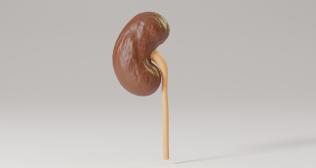
Urine Leakage During Coughing: Causes, Symptoms & Risk Factors
A sudden cough, a hearty laugh, or a powerful sneeze; these are normal, everyday physical reactions. For many people, however, these simple actions are accompanied by an unwelcome and often embarrassing consequence: a small leak of urine. This experience of urine leakage while coughing is incredibly common, yet it remains a topic steeped in silence and stigma, often dismissed as a normal part of aging or a consequence of childbirth.
This issue is not just a minor inconvenience; it is a recognized medical condition with specific causes and highly effective treatments. Understanding why leaking urine when coughing happens is the first step for millions of people to move past the embarrassment and seek the support they need to regain confidence and control.
Understanding the Medical Condition
The involuntary loss of urine during moments of physical exertion is known as Stress Urinary Incontinence (SUI). The "stress" in this context does not refer to emotional stress, but to physical pressure or strain placed on the bladder and pelvic floor. In a healthy urinary system, a group of muscles called the pelvic floor muscles, along with the urethral sphincter, work together to support the bladder and keep the urethra (the tube that carries urine out of the body) closed.
When you cough, sneeze, laugh, lift something heavy, or exercise, the pressure inside your abdomen suddenly increases. This pressure pushes down on the bladder. If the pelvic floor muscles or the sphincter are weakened or damaged, they cannot counteract this force effectively. The sphincter is pushed open, allowing urine to leak out. This is the core mechanism behind urinating while sneezing and other similar activities.
The Primary Urine Leakage While Coughing Causes
The strength and integrity of the pelvic floor can be compromised by a number of factors throughout a person's life. The urine leakage while coughing causes are almost always related to the weakening of these crucial supportive structures.
Pregnancy and Childbirth
This is one of the most significant risk factors for women.
- Pregnancy: The weight of the growing uterus places continuous strain on the pelvic floor muscles for months.
- Vaginal Delivery: The process of childbirth can stretch and sometimes damage the pelvic floor muscles and the nerves that control them. The use of forceps or a vacuum during delivery can increase this risk.
Menopause and Hormonal Changes
The hormone estrogen plays a vital role in maintaining the thickness of the lining of the urethra and the strength of the pelvic muscles. As estrogen levels decline during and after menopause, these tissues can become weaker and less able to withstand pressure, leading to an increased likelihood of leaks.
Chronic Strain on the Pelvic Floor
Any condition that repeatedly puts pressure on the abdomen can weaken the pelvic floor over time.
- Chronic Cough: Conditions like chronic bronchitis, asthma, or a long-term smoker's cough create frequent, forceful pressure spikes.
- Chronic Constipation: Regularly straining to have a bowel movement puts significant stress on the pelvic floor.
- Obesity: Carrying excess body weight, particularly around the abdomen, places constant downward pressure on the bladder and pelvic muscles.
Previous Pelvic Surgery
Certain surgical procedures can impact the supportive structures of the urinary system.
- Hysterectomy: The removal of the uterus can sometimes affect the anatomical support of the bladder and urethra.
- Prostate Surgery in Men: While SUI is more common in women, men can develop it, most often as a complication of surgery for prostate cancer (prostatectomy), which can damage the urethral sphincter.
Recognizing the Urine Leakage While Coughing Symptoms
The urine leakage while coughing symptoms are straightforward and are defined by the context in which they occur.
- The Primary Symptom: The main sign is the leakage of urine during a moment of physical stress. The amount can vary from just a few drops to a stream large enough to soak through clothing.
- Specific Triggers: The leakage happens predictably with activities like coughing, sneezing, laughing, jumping, running, or lifting heavy objects.
- Absence of Urge: A key diagnostic feature is that the leakage occurs without the feeling or warning of needing to urinate. This distinguishes it from another common type of incontinence called Urge Incontinence, where a person feels a sudden, intense urge to urinate and may not make it to the bathroom in time.
Effective Urine Leakage While Coughing Treatment
The good news is that SUI is a highly treatable condition. The urine leakage while coughing treatment plan often starts with conservative, non-invasive methods and can progress to other options if needed.
Lifestyle and Behavioral Therapies
These are the first line of defense and are effective for many people.
- Pelvic Floor Muscle Exercises (Kegels): This is the most important treatment. Kegels involve consciously squeezing and lifting the same muscles you would use to stop the flow of urine. When done correctly and consistently, these exercises can significantly strengthen the pelvic floor, providing better support for the bladder and urethra.
- Bladder Training: This involves scheduling bathroom visits at set times to help you regain control over your bladder.
- Maintaining a Healthy Weight: Losing even a small amount of excess weight can dramatically reduce the pressure on your pelvic floor.
- Dietary Changes: Avoiding bladder irritants like caffeine, alcohol, and carbonated drinks can sometimes help reduce leakage episodes.
Medical Devices
For some women, medical devices can provide support.
- Pessaries: A pessary is a small, flexible ring that is inserted into the vagina to help support the bladder neck and prevent leaks.
Surgical Options
When conservative treatments are not enough, surgery can be a very effective option.
- Sling Procedures: This is the most common surgery for SUI. The surgeon uses a small piece of synthetic mesh or your own body tissue to create a "sling" or hammock that supports the urethra, keeping it closed during moments of pressure.
- Bladder Neck Suspension: This procedure involves placing sutures to provide support to the urethra and bladder neck.
Regaining Control and Confidence
Experiencing urine leakage while coughing is a common medical issue, not a personal failing or an inevitable part of life. Effective and accessible treatments are available to help you regain control and live without fear of leaks.
The most important step is to break the silence and speak with your doctor. A conversation with a healthcare professional can start you on the path to a proper diagnosis and a personalized treatment plan, empowering you to reclaim your confidence and quality of life.
Frequently Asked Questions
1. Is leaking urine when coughing a normal part of getting older?
Ans. While it becomes more common with age, it is not a normal or inevitable part of aging. It is a treatable medical condition at any age.
2. Can men experience this type of leakage?
Ans. Yes. Although it is much more common in women, men can develop stress urinary incontinence, most often after prostate surgery.
3. How long does it take for Kegel exercises to work?
Ans. With consistent, daily practice, most people will notice a significant improvement in their symptoms within 6 to 12 weeks.
4. Will drinking less water help stop the leaks?
Ans. Drinking less water can lead to more concentrated urine, which can irritate the bladder and potentially make things worse. It can also lead to dehydration. It's important to drink a healthy amount of water throughout the day.
5. When should I see a doctor about this issue?
Ans. You should see a doctor as soon as the leakage starts to bother you or affect your daily activities. There is no need to wait or feel embarrassed.



















